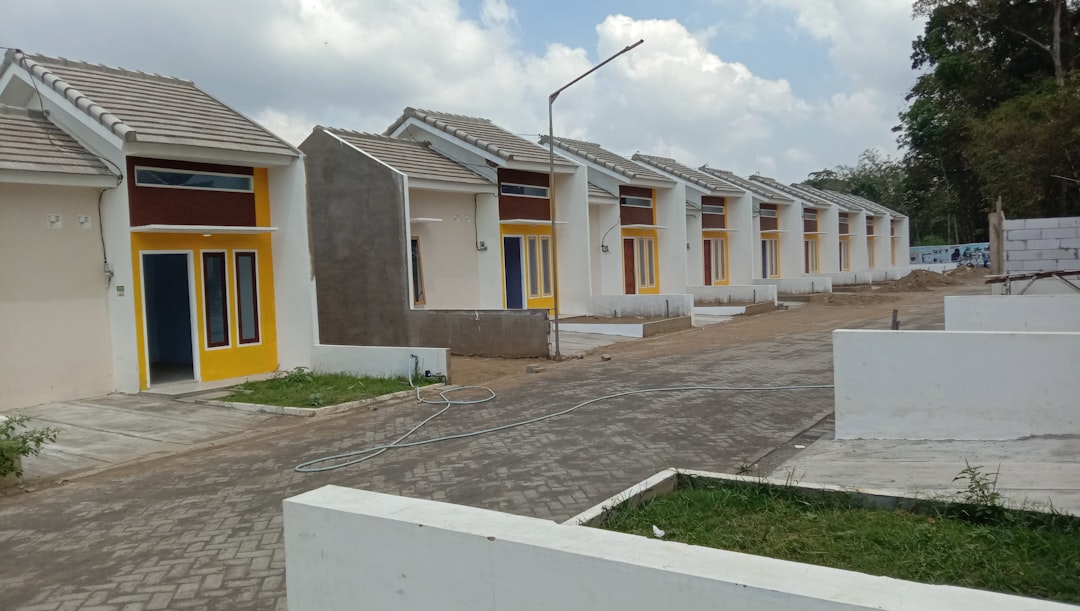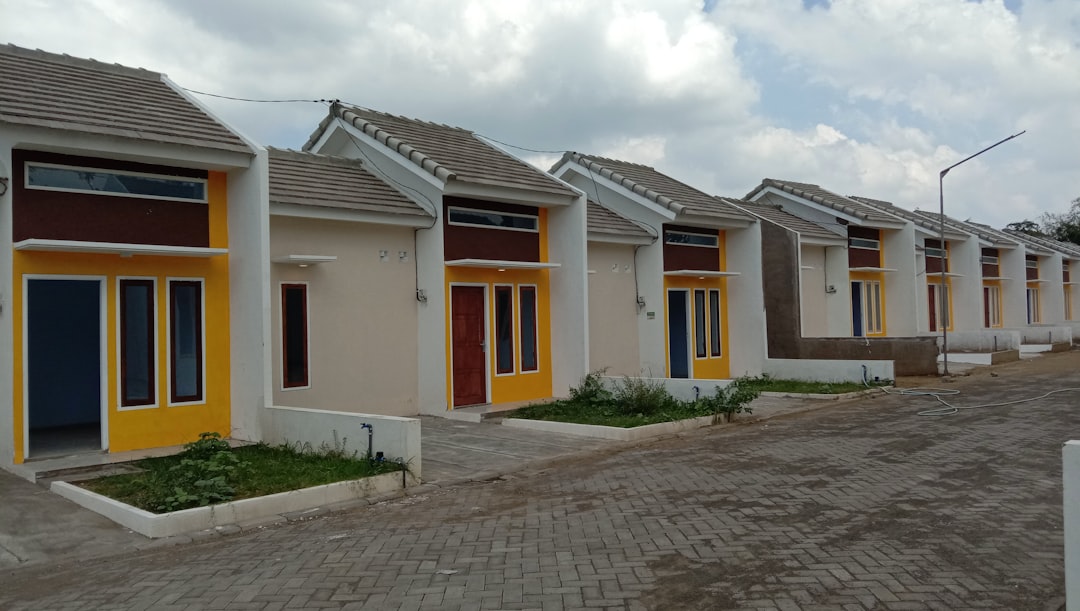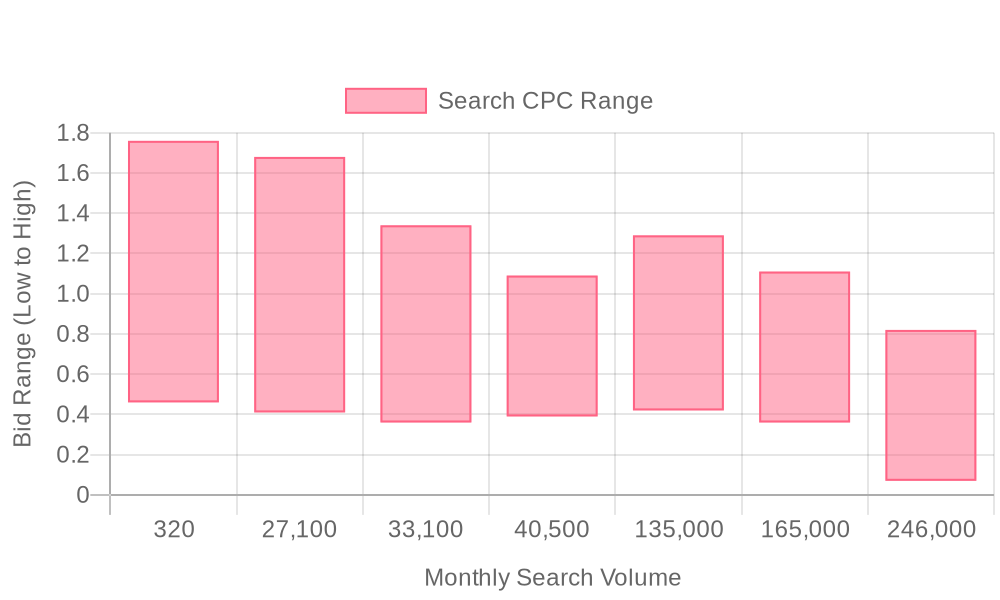
Supercharge your lead generation with a FREE Google Ads audit - no strings attached! See how you can generate more and higher quality leads
Get My Free Google Ads AuditFree consultation

No commitment
Supercharge your lead generation with a FREE LinkedIn Ads audit - no strings attached! See how you can generate more and higher quality leads
Get My Free Google Ads AuditFree consultation

No commitment
Supercharge your lead generation with a FREE Meta Ads audit - no strings attached! See how you can generate more and higher quality leads
Get My Free Google Ads AuditGet My Free LinkedIn Ads AuditGet My Free Meta Ads AuditFree consultation

No commitment
Supercharge your lead generation with a FREE Google Ads audit - no strings attached! See how you can generate more and higher quality leads
Get My Free Google Ads AuditFree consultation

No commitment
In today\u0019s competitive landscape of manufactured homes sales, utilizing Google Ads can be a game-changer in reaching high-intent buyers precisely when they are looking for solutions. As the manufactured homes industry continues to evolve, integrating Google Ads enables businesses to intercept potential home buyers who are actively searching online. This strategic channel not only drives lead generation but also seamlessly bridges online ad efforts with offline sales processes. When executed effectively, Google Ads can target the exact audience needed, ensuring every click is valuable and every lead is qualified. From optimized keyword strategies to comprehensive conversion tracking and targeted delivery, Google Ads offers manufactured homes businesses the opportunity to amplify their reach and boost ROI.
Modern manufactured home sellers consistently face the challenge of capturing high-intent buyers before they slip through the cracks. Precise digital strategies now make it possible to identify anonymous site visitors and efficiently channel them into tailored campaigns, ensuring qualified prospects are never overlooked.
A robust Google Ads program for manufactured homes sales demands a blend of strategic keyword targeting, dynamic audience segmentation, and real-time performance optimization. Businesses that unify marketing and sales data can direct resources towards genuine decision-makers, maximizing their advertising impact and eliminating wasted spend on low-quality leads.
Adopting a data-driven approach empowers teams to refine every campaign variable: from building niche keyword lists that mirror real buyer queries, to leveraging remarketing audiences that adapt as prospects move through the funnel. Integrated solutions make it possible to sync enriched lead data directly into advertising platforms, ensuring that both online and offline conversions are attributed accurately. For a step-by-step walkthrough on optimizing Google Ads for higher conversion rates in the home sales niche, explore this video tutorial. If you’re ready to see these strategies in action, get started for free with Sona.
Precise digital marketing is essential in the manufactured homes sector, where long sales cycles and informed buyers require timely, relevant outreach. Google Ads empowers teams to engage high-intent audiences in real time, reaching motivated home buyers and investors before competitors can act—discover actionable Google Ads strategies for home sales to sharpen your approach.
A persistent challenge for manufactured home sellers is delayed lead capture, which often results in missed opportunities and slower sales velocity. Modern PPC for manufactured homes solves this by identifying both anonymous and known visitors, then serving tailored content and calls to action that guide prospects toward conversion. With Sona Identification, sellers can reveal which companies and individuals are visiting their site—even if they don’t fill out a form—and automatically trigger sales or marketing follow-up for faster engagement.
Google Ads for Manufactured Homes Sales enables granular targeting of buyer personas such as real estate investors, retirees seeking affordable housing, or families interested in modular home upgrades. By leveraging advanced attribution models, marketers can shift budget to the highest-converting segments, ensuring resources are invested where ROI is most measurable.
Integrating these digital strategies with data-driven platforms allows home sales advertising efforts to sync CRM and ad platforms, keeping audience lists current as prospects move through the funnel. This approach provides full-funnel visibility, empowering teams to optimize spend, accelerate lead response, and expand reach into new geographic or demographic markets where traditional manufactured home marketing may be less effective. To experience these benefits firsthand, get started for free with Sona.

A data-driven approach to online advertising for homes elevates lead quality and accelerates deal cycles. When deploying Google Ads for Manufactured Homes Sales, campaign diversity ensures you capture buyers wherever they are in the journey. Each campaign type supports a distinct stage of your funnel, making it easier to optimize your Google Ads budget for homes while gaining actionable insights from your marketing analytics using the Sona blog.
Ready to elevate your manufactured home marketing? Get started for free with Sona.

Manufactured homes sales teams face a persistent challenge: incomplete visibility into ROI due to offline conversions that often go untracked. By capturing events like phone calls, in-person tours, and demo requests, organizations can finally attribute offline actions back to their digital campaigns, empowering smarter budget allocation and more precise optimization with offline attribution techniques.
Growth opportunities emerge when marketers expand targeting beyond standard search and display campaigns, moving into vertical keyword segments related to unique home features such as energy efficiency, smart home technology, or customizable layouts. These targeted keywords reach buyers actively searching for specific attributes, allowing brands to unlock niche demand that generic real estate terms miss. Leveraging retargeting strategies for manufactured homes ensures these high-intent audiences stay engaged as they research and compare options.
Performing a competitor gap analysis highlights underserved geographies or buyer personas. By mapping where competitors invest versus where market demand exists, marketers can direct ad spend toward areas with lower competition and greater ROI potential. Placements on industry-specific sites and forums help boost awareness among buyers deeply invested in manufactured housing topics.
Aligning content retargeting with promotional materials tailored specifically for risk-averse buyers, such as warranty comparisons or financing guides, addresses common buyer hesitations. With modern platforms, marketers can dynamically update audiences in real time as leads move through the funnel and use real-time intent signals to prioritize outreach to accounts showing the strongest buying signals. This closed-loop approach ensures every dollar invested in PPC for manufactured homes is measured, attributed, and continually optimized for maximum impact. To accelerate your pipeline, get started for free with Sona.

Audience segmentation in manufactured home sales focuses marketing resources on the highest-value prospects, resulting in more efficient spend and higher conversion rates. By tailoring ad strategies to distinct buyer motivations and behaviors, marketers can capture both immediate demand and long-term interest. For a comprehensive look at segmentation and analytics, explore our marketing analytics blog.
By applying this segmentation framework, digital marketing for manufactured homes can systematically increase lead quality, streamline budgets, and drive measurable results. Advanced attribution and CRM sync further connect ad engagement to downstream sales, providing a clear view of campaign effectiveness and fueling ongoing optimization in PPC for manufactured homes.

| Industry | Keyword | Monthly Search Volume | Competition Level | Low Bid | High Bid |
| Manufactured Homes Sales | manufactured homes sales | 320 | MEDIUM | 0.46 | 1.76 |
| Manufactured Homes Sales | modular homes near me | 27100 | HIGH | 0.41 | 1.68 |
| Manufactured Homes Sales | modular homes for sale | 33100 | HIGH | 0.36 | 1.34 |
| Manufactured Homes Sales | trailer homes for sale | 40500 | HIGH | 0.39 | 1.09 |
| Manufactured Homes Sales | mobile homes for sale near me | 135000 | MEDIUM | 0.42 | 1.29 |
| Manufactured Homes Sales | mobile homes for sale | 165000 | HIGH | 0.36 | 1.11 |
| Manufactured Homes Sales | clayton homes | 246000 | LOW | 0.07 | 0.82 |
Precision in keyword targeting is fundamental for manufactured home sellers aiming to attract qualified leads and maximize ad spend efficiency. High-impact, intent-driven terms ensure ads appear only to buyers actively searching for manufactured homes, making every click more likely to convert. For a comprehensive overview of optimizing Google Ads for home sales, watch this step-by-step tutorial.
In this space, integrating core keywords such as 'manufactured homes for sale,' 'affordable mobile homes,' and location-specific phrases like 'mobile homes in [City/State]' delivers immediate relevance. These terms align with the exact queries of users seeking properties, enabling ad budgets to focus on prospects who are ready to purchase or inquire. Layering negative keywords, such as 'DIY,' 'assembly instructions,' or unrelated searches, keeps ads away from low-value audiences, further concentrating spend on high-quality traffic. Explore additional keyword segmentation strategies in our actionable playbooks.
Optimizing for both generic and hyper-local keywords expands reach, but only to those with clear intent to buy. Continuous analysis of search terms allows for ongoing refinement, removing wasted spend and capturing shifting market demand. When paired with advanced visitor identification, marketers can access granular visibility into which companies and buyer profiles are engaging with specific keyword targets, bridging the gap between anonymous clicks and actionable sales opportunities.
A robust keyword strategy is not static. Dynamic audiences, fueled by real-time search intent data and CRM integration, ensure campaigns reflect the current buying stage of each lead. As prospects advance through the funnel, keyword lists and targeting parameters can adapt automatically, aligning ad messaging and landing experiences with where each buyer is in their journey. This level of specificity directly accelerates lead generation for manufactured homes, optimizing every campaign for both volume and conversion quality. To experience these benefits firsthand, get started for free with Sona.

Modern revenue teams recognize that the right keyword foundation drives efficient lead generation for manufactured homes. Start by segmenting keyword clusters based on buyer intent, such as “family manufactured homes,” “customizable mobile homes,” or “energy-efficient prefab housing.” For a deeper dive into keyword research and campaign scaling, explore this in-depth guide to using Google Ads for home sales. These clusters allow for granular targeting of prospective buyers actively searching for specific product types or features.
Enhance campaign precision by adding local modifiers like city or neighborhood names. This adjustment improves relevance and surfaces your ads to high-intent searchers in target geographies. Expand reach further with long-tail queries such as “affordable manufactured homes in Dallas with financing.” To conserve budget and maintain quality, systematically implement negative keywords that filter out unrelated searches, for example, excluding “RV homes” or “modular office trailers.” When Sona is integrated, marketers can push enriched audience segments and real buyer signals directly into Google Ads, ensuring that targeting reflects real-time engagement and intent.
In manufactured home sales, ad messaging must address buyer needs with clarity and urgency. Headlines such as “Move-In Ready Family Homes” or “Certified Energy-Saving Mobile Homes” immediately speak to core concerns. Incorporate trust signals—terms like “industry certified,” “warranty included,” or “24/7 support”—to establish credibility and reduce friction in the decision process. For examples of high-converting ad copy and offers, view this step-by-step Google Ads optimization tutorial. Standout offers, such as “Request a Free Estimate” or “Schedule Your Tour Today,” drive higher click-through and conversion rates.
For advanced teams, leveraging unified CRM and ad platform data enables the tailoring of ad copy at scale. Dynamic audience insights ensure messaging evolves alongside prospect movement in the sales funnel, increasing relevance for each exposure. This level of personalization is especially impactful when using systems that sync audience data and custom attributes directly into Google Ads for manufactured homes sales campaigns.
The landing page is the make-or-break moment for digital marketing for manufactured homes. Ensure each page aligns tightly with the ad’s keyword and offer. If the ad promotes “customizable manufactured homes in Phoenix,” the landing page should prominently feature that service and location, reflecting the same language and value propositions. For conversion-focused landing page design strategies, check out this guide to performance marketing for real estate.
High-value calls to action (CTAs) such as “Book a Virtual Tour” or “Download Floor Plans” capture lead intent and drive measurable engagement. Mobile compatibility is critical, as a significant portion of home search traffic comes from smartphones and tablets. To further boost outcomes, platforms that identify visitor companies and sync real-time behavioral data into CRM systems allow sales and marketing teams to trigger personalized follow-ups based on on-site actions.
Maximizing ROI in home sales advertising requires rigorous, ongoing optimization. Monitor conversion metrics—such as form fills, phone calls, or appointment bookings—to identify top-performing ads and keywords. Test multiple ad variations, adjusting copy, offers, and visuals based on performance data. Employ data-driven bidding strategies, allocating budget to audiences or locations that deliver the highest conversion rates. For advanced optimization techniques and campaign setup tips, watch this Google Ads strategies video.
Offline conversion import is essential for full-funnel attribution: connect sales from phone calls or in-person appointments back to specific ad campaigns. This linkage enables teams to optimize not just for online clicks, but for completed transactions. Advanced platforms streamline this process by importing offline sales data into Google Ads and syncing results with CRM systems, providing a unified view of campaign effectiveness across every touchpoint. Consistent application of these insights allows for smarter budget allocation and scalable growth in PPC for manufactured homes. To see how this can work for your team, get started for free with Sona.

A robust digital presence is critical for manufactured home businesses seeking to capture more qualified leads in today’s highly competitive market. Adopting a synchronized sales and marketing approach ensures each buyer touchpoint is timely, relevant, and impactful, helping you stand out while streamlining operations. For a deeper dive into optimizing your marketing analytics and attribution, explore our blog resources.
Advanced tools have made it possible to coordinate CRM follow-up with Google Ads campaigns, aligning sales outreach precisely when prospects engage with your brand. This integration enables real-time syncing of audience data, letting teams act on intent signals and nurture prospects as they progress through the buying journey.
Integrating Google Ads for Manufactured Homes Sales gives businesses the agility to respond to shifting market demands, ensuring that every high-intent search or click is captured and nurtured. Addressing common pain points like missed prospects or inadequate offline tracking becomes seamless with unified audience data and precise retargeting capabilities. With enriched CRM profiles and synchronized ad triggers, manufactured home companies can deploy educational assets that elevate content engagement and credibility, unlocking new growth opportunities at every stage of the funnel. Ready to transform your sales and marketing alignment? Get started for free with Sona.
In conclusion, leveraging Google Ads effectively for manufactured home sales requires a nuanced understanding of both the platform's capabilities and the unique dynamics of the housing market. By tailoring your advertising strategies to highlight the affordability, customization options, and modern amenities of manufactured homes, you can significantly increase visibility and generate quality leads.
Throughout this article, we've explored the key challenges facing marketers in this niche—such as targeting the right audience and crafting compelling ad copy—and offered actionable solutions. From utilizing advanced audience targeting features to optimizing your ad spend with data-driven insights, these strategies can help you maximize your ROI and stand out in a competitive marketplace.
Imagine transforming your advertising efforts from guesswork to a data-driven powerhouse that consistently delivers results. By embracing these strategies, you can unlock new opportunities for growth and drive meaningful engagement with potential buyers. It's all about taking proactive steps to ensure your campaigns are not just seen, but also resonate with your target audience.
To help you achieve these goals and more, we invite you to start for free and experience our platform's capabilities today. Let us empower your marketing efforts with the tools and insights you need to succeed in the manufactured home sales industry.
Best practices include using strategic keyword targeting, dynamic audience segmentation, real-time performance optimization, and integrating marketing and sales data to maximize advertising impact.
Optimize by building targeted keyword lists, crafting compelling ad copy, designing effective landing pages, and implementing data-driven optimizations such as conversion tracking and audience segmentation.
Allocate budget based on high-intent targets, adjusting for audience segments that deliver the highest conversion rates and shifting funds towards high-performing geographic or demographic segments.
Target keywords like 'manufactured homes for sale,' 'affordable mobile homes,' and location-specific phrases such as 'mobile homes in [City/State]' while also using negative keywords to filter out low-value searches.
Measure success by monitoring conversion metrics such as form fills, phone calls, and appointment bookings, and use offline conversion import to attribute offline sales to specific ad campaigns.
Join results-focused teams combining Sona Platform automation with advanced Google Ads strategies to scale lead generation

Connect your existing CRM

Free Account Enrichment

No setup fees
No commitment required

Free consultation

Get a custom Google Ads roadmap for your business
Join results-focused teams combining Sona Platform automation with advanced Meta Ads strategies to scale lead generation

Connect your existing CRM

Free Account Enrichment

No setup fees
No commitment required

Free consultation

Get a custom Google Ads roadmap for your business
Join results-focused teams combining Sona Platform automation with advanced LinkedIn Ads strategies to scale lead generation

Connect your existing CRM

Free Account Enrichment

No setup fees
No commitment required

Free consultation

Get a custom Google Ads roadmap for your business
Join results-focused teams using Sona Platform automation to activate unified sales and marketing data, maximize ROI on marketing investments, and drive measurable growth

Connect your existing CRM

Free Account Enrichment

No setup fees
No commitment required

Free consultation

Get a custom Google Ads roadmap for your business
Over 500+ auto detailing businesses trust our platform to grow their revenue
Join results-focused teams using Sona Platform automation to activate unified sales and marketing data, maximize ROI on marketing investments, and drive measurable growth

Connect your existing CRM

Free Account Enrichment

No setup fees
No commitment required

Free consultation

Get a custom Google Ads roadmap for your business
Over 500+ auto detailing businesses trust our platform to grow their revenue
Join results-focused teams using Sona Platform automation to activate unified sales and marketing data, maximize ROI on marketing investments, and drive measurable growth

Connect your existing CRM

Free Account Enrichment

No setup fees
No commitment required

Free consultation

Get a custom Google Ads roadmap for your business
Over 500+ auto detailing businesses trust our platform to grow their revenue
Our team of experts can implement your Google Ads campaigns, then show you how Sona helps you manage exceptional campaign performance and sales.
Schedule your FREE 15-minute strategy sessionOur team of experts can implement your Meta Ads campaigns, then show you how Sona helps you manage exceptional campaign performance and sales.
Schedule your FREE 15-minute strategy sessionOur team of experts can implement your LinkedIn Ads campaigns, then show you how Sona helps you manage exceptional campaign performance and sales.
Schedule your FREE 15-minute strategy sessionOur team of experts can help improve your demand generation strategy, and can show you how advanced attribution and data activation can help you realize more opportunities and improve sales performance.
Schedule your FREE 30-minute strategy sessionOur team of experts can help improve your demand generation strategy, and can show you how advanced attribution and data activation can help you realize more opportunities and improve sales performance.
Schedule your FREE 30-minute strategy sessionOur team of experts can help improve your demand generation strategy, and can show you how advanced attribution and data activation can help you realize more opportunities and improve sales performance.
Schedule your FREE 30-minute strategy sessionOur team of experts can help improve your demand generation strategy, and can show you how advanced attribution and data activation can help you realize more opportunities and improve sales performance.
Schedule your FREE 30-minute strategy session





Launch campaigns that generate qualified leads in 30 days or less.
